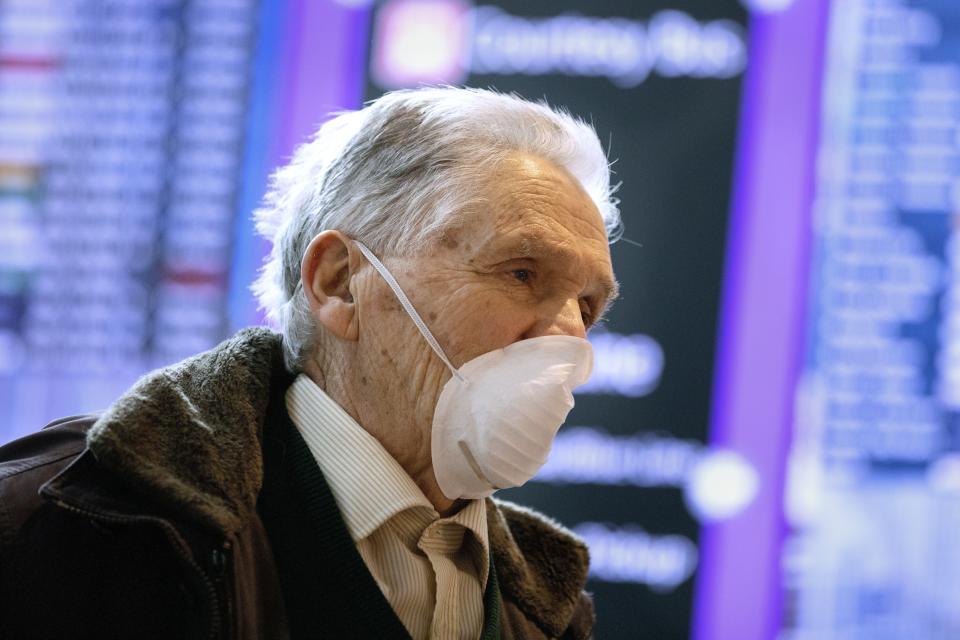Stocks fall as US Fed’s surprise stimulus puts investors on edge

Stocks sank across the world on Monday after a series of emergency stimulus measures from the US Federal Reserve failed to calm anxious markets.
The S&P 500 (^GSPC), which opened more than 8% in the red — immediately triggering a 15-minute halt to trading — was down by more than 9%.
The Dow Jones Industrial Average (^DJI) and the Nasdaq (^IXIC) were also down by more than 9%.
In Europe, the STOXX 600 index (^STOXX) fell by almost 8% on Monday afternoon, with the surprise efforts raising the prospect that the Fed has already run out of ammunition to tackle the economic impact of the worsening coronavirus pandemic.
“The US Federal Reserve’s unscheduled half-point interest cut rate on 3 March provoked shock rather than awe as investors took fright that the American central bank — and its global counterparts — was running low on policy tools,” said Russ Mould, the investment director of AJ Bell.
Read more: Federal Reserve slashes rates to zero in emergency Sunday announcement
London’s FTSE 100 (^FTSE) fell by almost 7%. Germany’s DAX (^GDAXI) was down by around 7.6% and France’s CAC 40 (^FCHI) declined by around 8.7%.
The Fed on Sunday unexpectedly cut interest rates to near zero for the first time since the financial crisis, and said it would restart its quantitative easing programme by buying hundreds of billions of dollars in government debt.
The central bank said it will use its “full range of tools” to battle the economic impacts of the pandemic.
“The Fed will therefore be hoping that its new policy move, which will take total assets on its balance sheet above the $5tn [£4tn] mark, will offer support to the economy and get a warmer reception from financial markets,” said Mould.
“There can be no denying the Fed’s commitment to action but its dramatic move will initially stoke further debate as to whether the monetary medicine will work, on the economy or markets or both.”
In coordinated action, the Fed, along with the Bank of England, the European Central Bank, the Swiss National Bank, the Bank of Japan, and the Bank of Canada, also said they would offer better terms on their swap lines to support the global supply of the dollar, which is considered the world’s reserve currency.
Read more: TUI suspends all package holidays and cruises and asks for state aid
Swap lines, which allow the Fed to supply dollars to other central banks in return for their own denominated currency, were routinely used during the 2008 financial crisis.
The weak trading session in Europe followed similar declines in Asia.
China’s SSE Composite Index (^SSEC) fell by 3.4% on Monday, while the Hang Seng (^HSI) was down 4% in Hong Kong at market close.
Japan’s Nikkei (^N225) fell almost 2.5%. The KOSPI Composite Index (^KOSPI) in South Korea closed over 3.1% in the red.

 Yahoo Finance
Yahoo Finance 
